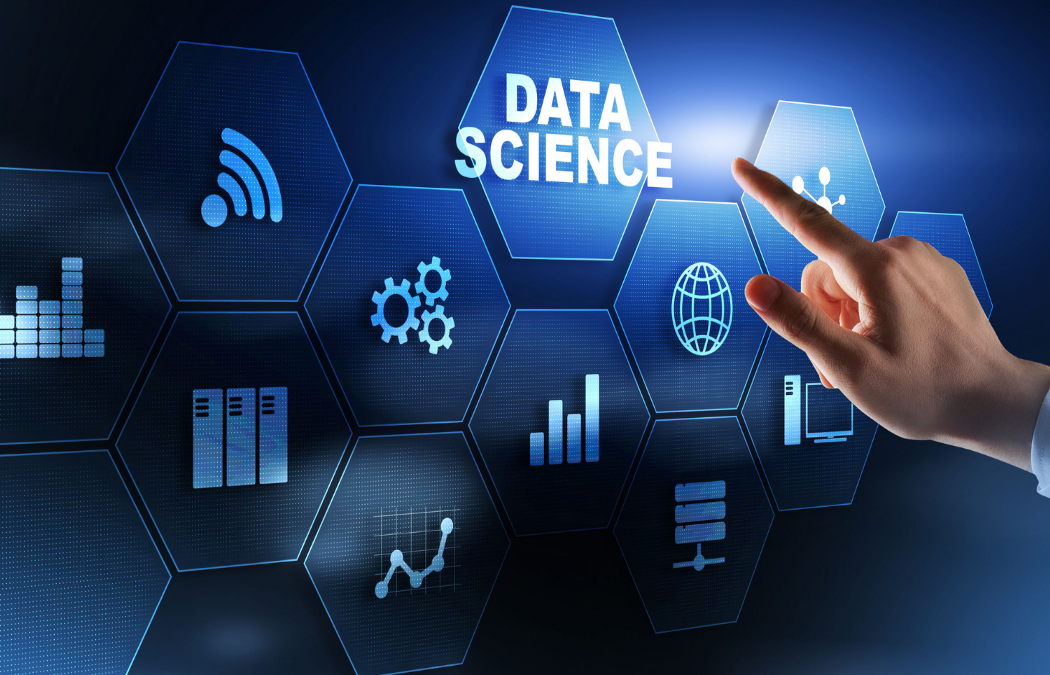Embarking on the data science journey involves navigating a diverse landscape of tools that serve as the backbone of this dynamic field. Right from data collection and cleaning to analysis and visualization, the arsenal of data science tools is vast and continually evolving. In this article, we intend to explore the multifaceted world of data science tools, delving into their functionalities, applications, and pivotal role in extracting meaningful insights from complex datasets. Whether you’re a seasoned data scientist or an aspiring enthusiast, understanding these tools is essential for mastering the art and science of data analysis.
Mastering the intricacies of data science involves enrolling in a comprehensive course that covers tools, techniques, and processes. Platforms like IIT offer a structured curriculum, including programming languages, statistical methods, and hands-on applications. Real-world case studies and a holistic approach ensure a thorough understanding, empowering individuals to navigate data science complexities confidently.
A course in data science from IIT provides a comprehensive learning experience encompassing tools, techniques, and processes vital in the field. Through a curated curriculum, it covers programming languages like Python, R and specialized platforms. The course delves into statistical methods, machine learning algorithms, and data preprocessing. Real-world applications and hands-on experience further enhance proficiency. With a focus on the complete data science workflow, from acquisition to analysis, the course ensures a thorough understanding of tools and techniques. The prestige of IIT’s education enhances the learning journey, equipping individuals to navigate the multifaceted landscape of data science adeptly.
What is data science?
Data science, in the Indian context, is a transformative field leveraging advanced analytics to extract insights from diverse datasets. It plays a crucial role in finance, healthcare, and technology, optimizing processes, predicting trends, and guiding strategic decisions. With applications ranging from personalized services to efficient resource management, data science is reshaping how businesses operate in India. Professionals in this field analyze and interpret data, driving innovation, improving efficiency, and contributing to India’s growth in the digital era, where data-driven insights are integral to solving complex challenges and fostering sustainable development.
What are data science tools?
Data science tools encompass software and programming resources for collecting, cleaning, analyzing, and visualizing data. These tools, including programming languages like Python and R, specialized platforms, and statistical software, are integral to the data science workflow. They empower professionals to extract insights, identify patterns, and derive actionable intelligence from complex datasets, facilitating informed decision-making and innovation.
Importance of data science tools
Data science tools are paramount in extracting meaningful insights from vast datasets, pivotal in the modern information-driven landscape. These tools, ranging from programming languages like Python and R to specialized platforms, facilitate data collection, cleaning, analysis, and visualization. They empower data scientists to uncover patterns, trends, and actionable intelligence by streamlining complex processes. The efficiency of data science tools accelerates decision-making, innovation, and problem-solving across diverse industries. Their importance lies in transforming raw data into valuable knowledge, enabling businesses and professionals to make informed choices, optimize operations, and stay competitive in today’s data-centric world.
Data Analysis: Data analysis, a fundamental data science tool, involves inspecting, cleaning, transforming, and modeling data to extract valuable insights. Employing statistical methods and algorithms, data analysts discern patterns, trends, and relationships within datasets, contributing to informed decision-making. They uncover correlations and dependencies through techniques like regression analysis and hypothesis testing. Data analysis is pivotal in transforming raw data into actionable intelligence, providing a foundation for businesses and organizations to optimize operations, identify opportunities, and address challenges effectively in the dynamic landscape of data science.
Data Visualization: Data visualization, a crucial tool in data science, transforms complex datasets into accessible and visually compelling representations. It simplifies the communication of patterns and insights within data through charts, graphs, and interactive visuals. Effective data visualization enhances comprehension, facilitating informed decision-making for diverse audiences. Translating abstract information into a more understandable format aids in uncovering trends, anomalies, and relationships. This tool is instrumental in conveying complex findings to stakeholders, promoting transparency, and fostering a deeper understanding of data-driven insights, thereby playing a pivotal role in the synthesis and communication of information in data science.
Data Warehousing: Data warehousing is a critical data science tool involving centralized storage and managing large volumes of structured data from diverse sources. This consolidated repository enables efficient querying and analysis, fostering comprehensive insights. Employing Extract, Transform, Load (ETL) processes, data warehousing integrates, cleans, and organizes information. This tool streamlines reporting and analysis, facilitating decision-making. With its ability to handle historical data and support complex queries, data warehousing enhances business intelligence, providing a solid foundation for strategic planning and informed actions within the dynamic realm of data science.
Data Modelling: Data modeling is a pivotal data science tool involving the creation of structured representations of data and its relationships within a system. Employing conceptual, logical, and physical models, data scientists define how data should be organized and accessed. This process ensures data accuracy and consistency and facilitates efficient retrieval. Data modeling aids in designing databases, optimizing storage, and improving overall system performance. By providing a blueprint for database development and management, data modeling enhances decision-making, supports analysis, and effectively utilises data in the intricate landscape of data science.
Conclusion
Navigating the diverse realm of data science tools is essential for professionals and enthusiasts seeking to harness data’s power. Programming languages like Python and R to specialized platforms facilitating analysis and visualization, these tools form the backbone of data-driven decision-making. A dedicated course in data science from IIT provides a structured pathway to master these tools, offering in-depth knowledge and practical skills. Such a course not only elucidates the functionalities of various tools but also guides learners in their effective application. Embracing education in data science equips individuals with the expertise to wield these tools strategically, transforming raw data into actionable insights in the dynamic landscape of data science.
